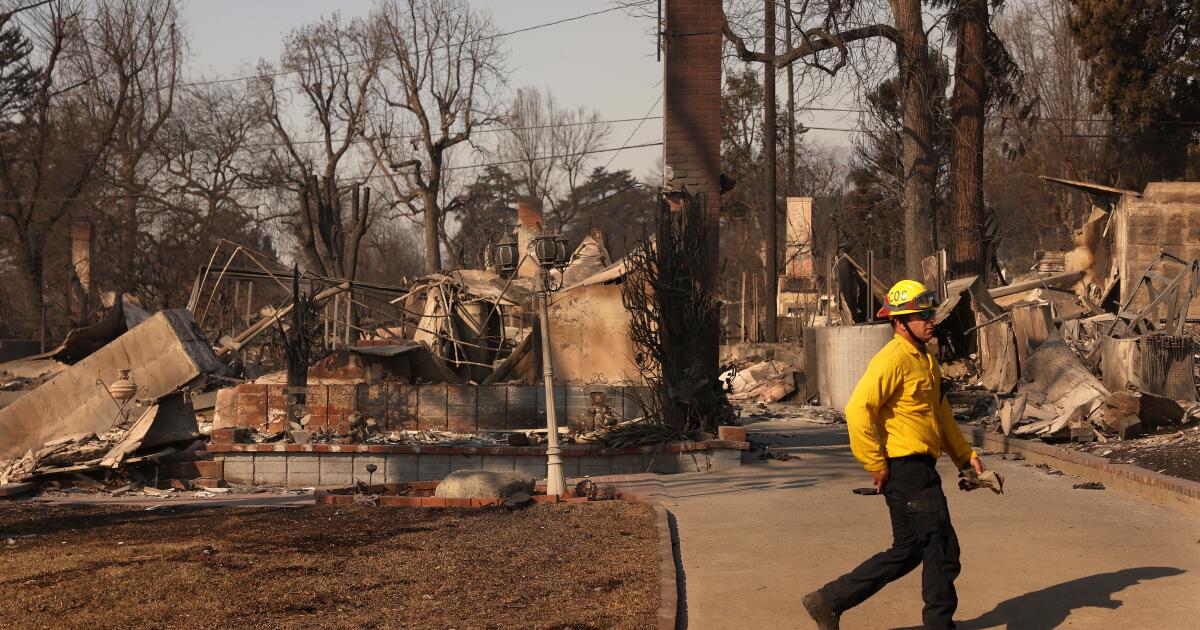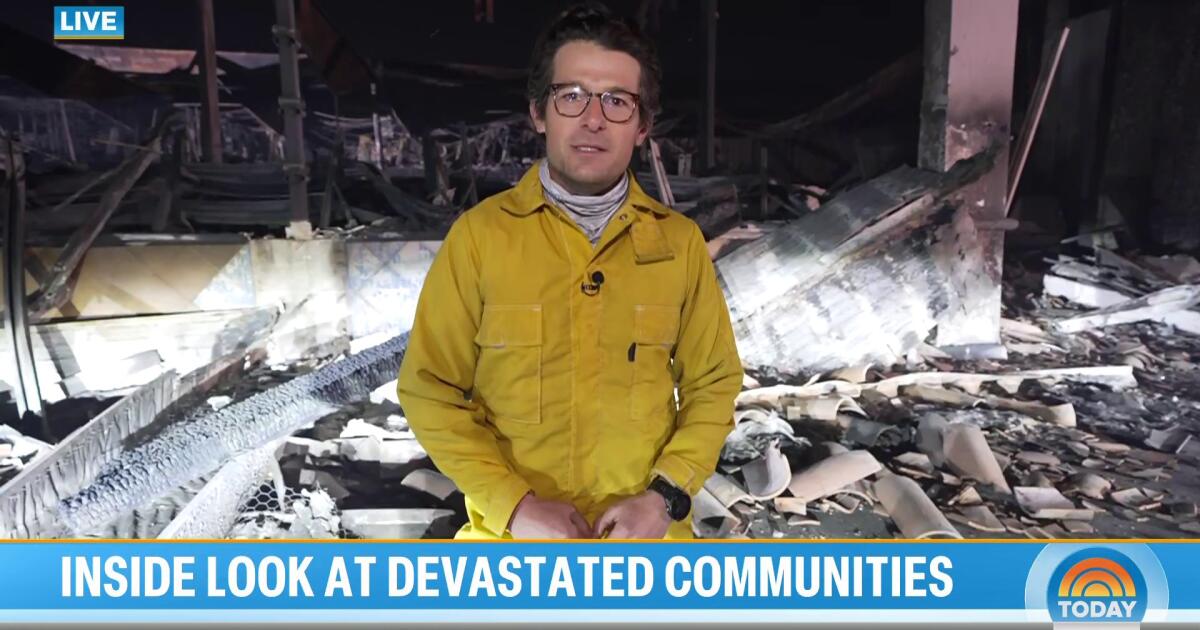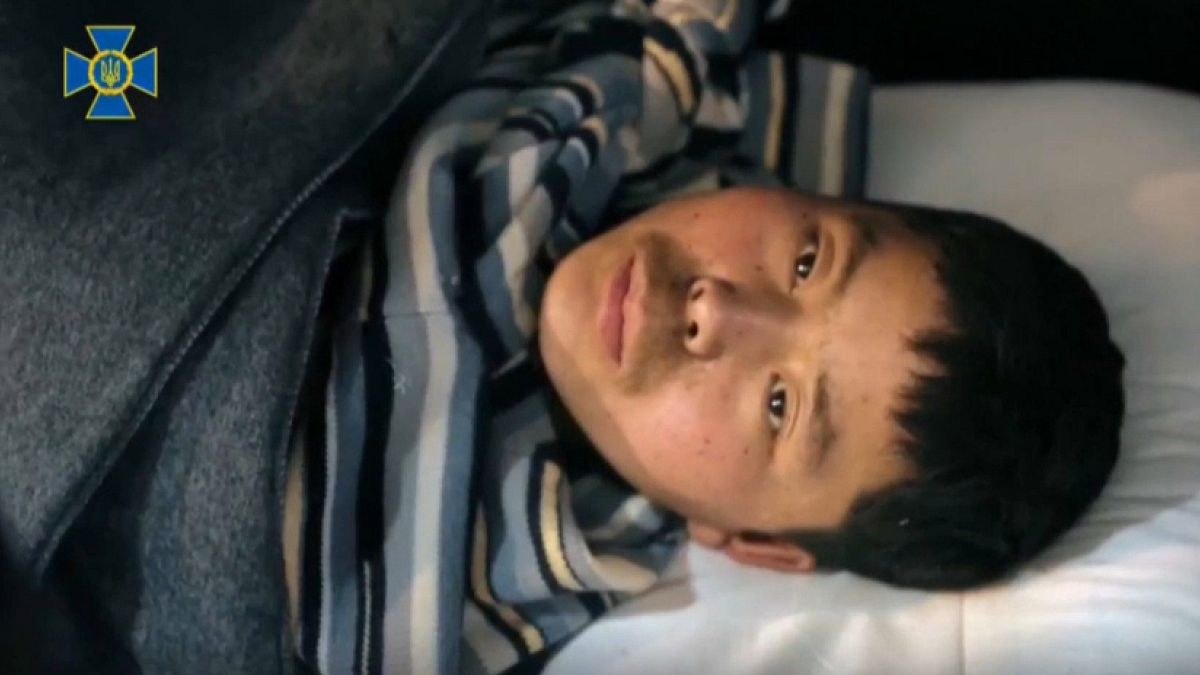Health
Why higher UV index numbers are more dangerous during sun exposure
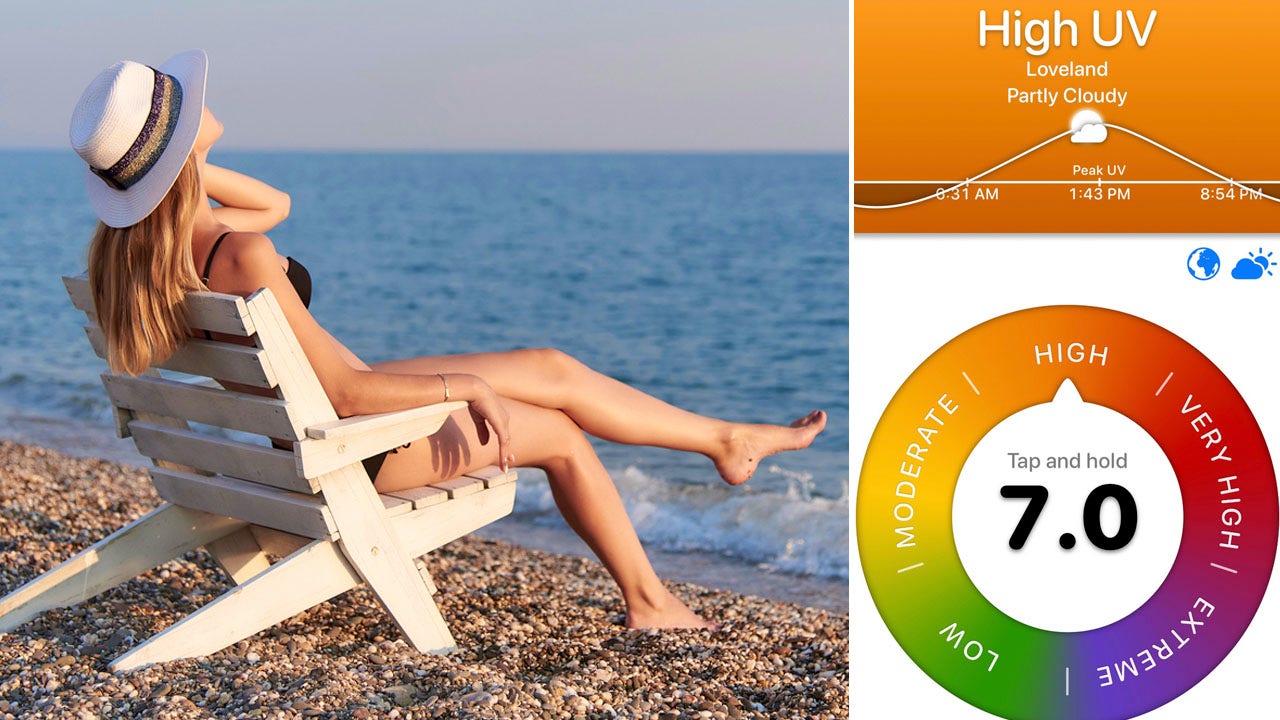
Tracking the UV has become a trend among some young adults — namely members of Gen Z, who are looking for optimal sun exposure.
The UV index is a daily forecast that measures the intensity of ultraviolet (UV) radiation from the sun.
The numbers range from 1, the lowest exposure, to 11+, which indicates extreme sun exposure.
TANNING PILLS CAN POSE SERIOUS DANGERS, DERMATOLOGISTS WARN: ‘CONSUMERS SHOULD BE AWARE’
Many young adults keep track of the UV through weather apps on their smartphones, in hopes that a high number will lead to a better tan — but some health experts are warning of the potential dangers.
Tanning at higher UV levels is more likely to cause damage that can lead to skin cancer, according to Eric D. Whitman, M.D., medical director of Atlantic Health System’s oncology service line in New Jersey.
A UV (ultraviolet) index chart depicts exposure levels from 1 to 11+. (iStock)
“While some effects might be seen immediately, such as dark spots and marks, cancer may not become apparent for decades,” he told Fox News Digital.
DOES SUNSCREEN CAUSE SKIN CANCER? DOCTORS DEBUNK CLAIMS GONE WILD ON SOCIAL MEDIA
Exposure to higher UV levels can result in a faster and deeper tan, but this comes at a “significant trade-off of an increased risk of skin cancer,” Whitman warned.
“So, it is important to take precautions when planning to spend time outdoors,” he added.

Exposure to higher UV levels can result in a faster, deeper tan, but it comes at a “significant trade-off of increased risk of skin cancer,” a doctor warned. (iStock)
Dr. Brendan Camp, a Manhattan-based board-certified dermatologist, also shared with Fox News Digital that there is “no such thing as a safe tan.”
Tanning represents the skin’s response to the damaging insult of UV radiation, the doctor noted.
SKIN CANCER CHECKS AND SUNSCREEN: WHY THESE (STILL) MATTER VERY MUCH FOR GOOD HEALTH
“The skin increases pigment or melanin production as a way to protect cellular components, namely DNA, from the effects of UV radiation,” Camp said.
Spending time outdoors when the UV index is high increases the risk of sunburn and sun damage, which can later develop into fine lines, wrinkles, dark spots or skin cancer, according to the dermatologist.
Responsible sunbathing
For safe sun exposure, experts recommend using sunscreen with SPF 30 or higher.
Sunscreen should be reapplied every two hours, or after swimming and sweating.
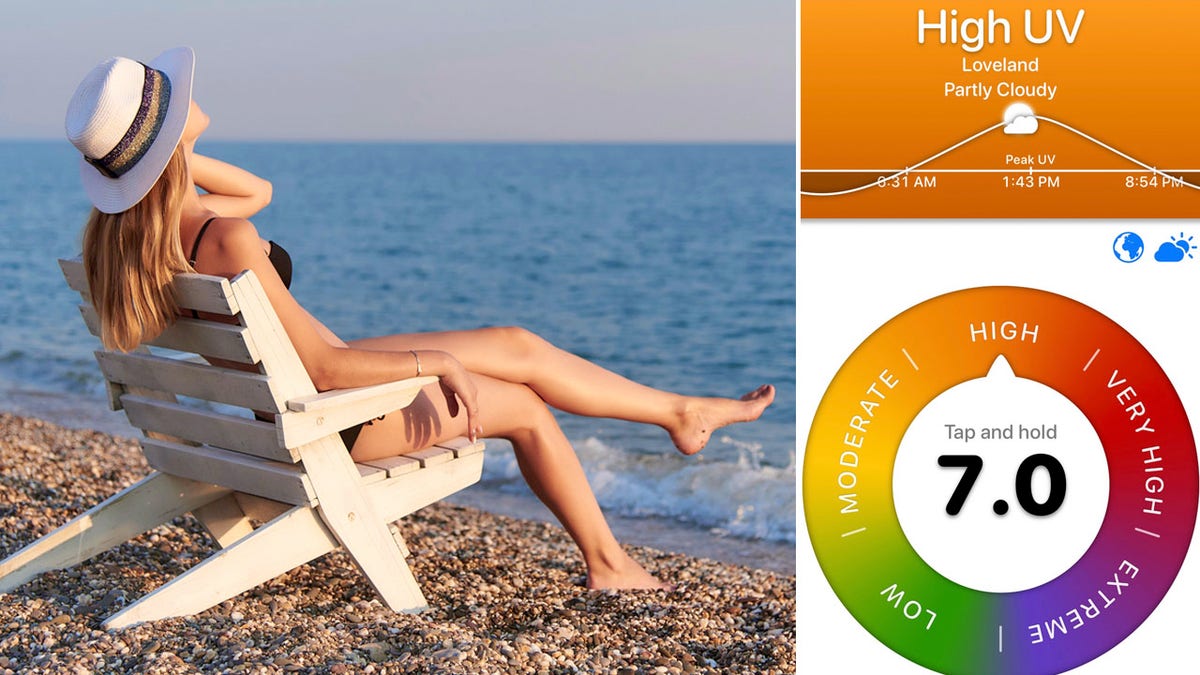
“Prolonged exposure without protection can lead to skin damage and increase the risk of skin cancer,” a doctor said. (iStock; Melissa Rudy/Fox News Digital)
Whitman and Camp also suggested wearing protective clothing, using an SPF lip balm, seeking shade and avoiding peak sun hours.
“Especially during summertime, it’s important to pay closer attention to kids to ensure they are properly protected against the sun,” Whitman advised.
CLICK HERE TO SIGN UP FOR OUR HEALTH NEWSLETTER
Some degree of sun exposure can be healthy due to the vitamin D benefits, he added, but only if limited to brief periods during non-peak hours.
While some may think they look healthier with a tan than without one, Whitman said it’s important to dispel this misconception.

A high UV index can lead to a deeper tan, but also the risk of increased sun damage, experts warn. (iStock)
“Prolonged unprotected sun exposure can potentially increase the risk of skin cancer,” he reiterated.
For more Health articles, visit www.foxnews/health
Skin cancer can only be diagnosed through regular skin examinations by a health care professional, Whitman noted.
When self-examining the skin, Whitman recommends looking for new or changing spots.
“But these [exams] should never replace a visit to the doctor,” he said.
“Any irregularities should be promptly evaluated by a health care professional to rule out potential risks or concerns.”

Health
Words and game of Scrabble keep married couple in wedded bliss for decades
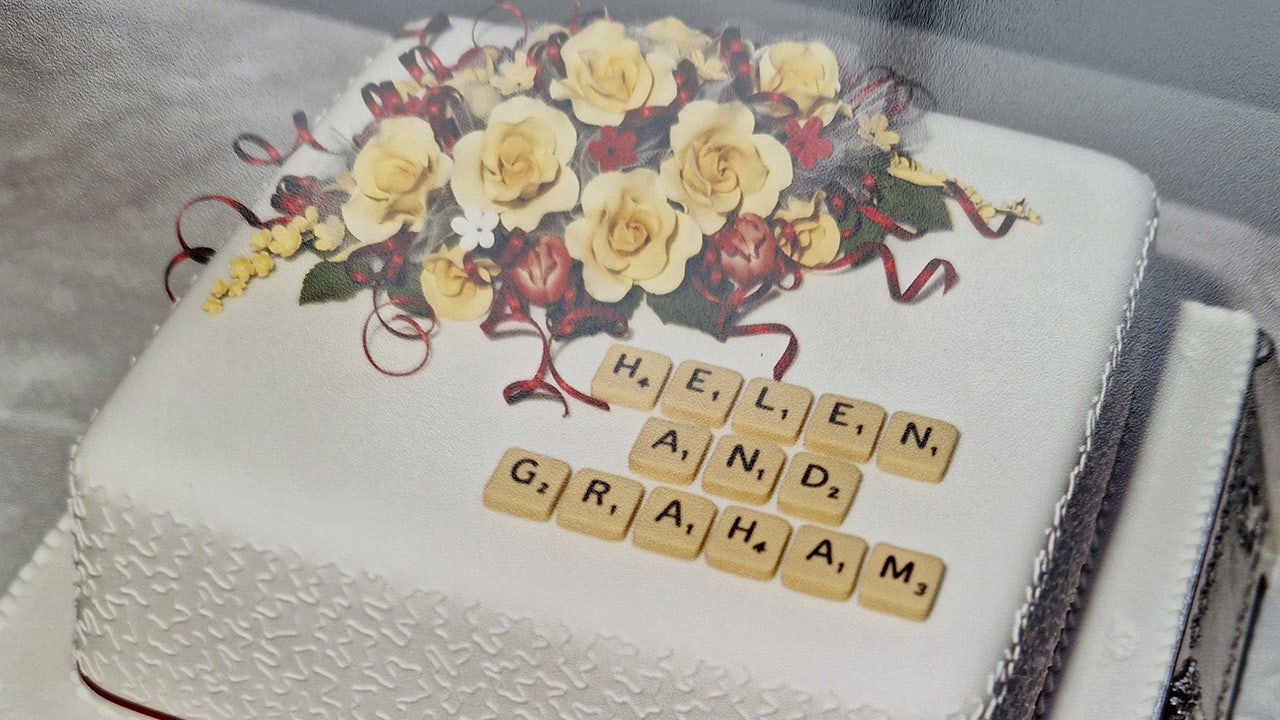
A married couple who have long enjoyed the game of Scrabble both together and separately before they even met are never at a loss for words — and attribute their wedded bliss in part to their love of the nostalgic game.
They’re still playing in tournaments built around the game decades after they began doing so.
Graham Harding and his wife Helen Harding, both in their 60s, have been married for over 20 years.
WATCHING GAME SHOWS LIKE ‘JEOPARDY!’ AND ‘WHEEL OF FORTUNE’ CAN BOOST COGNITIVE HEALTH, SAY EXPERTS
They met in the 1990s at Scrabble tournaments, as news agency SWNS reported.
But it was a “special match” in 2000 that brought the couple together — and has kept them together now.
Graham and Helen Harding on their wedding day. They’ve been playing in Scrabble tournaments for some 30 years. (Courtesy Graham and Helen Harding via SWNS)
Graham Harding is from the East Berkshire Scrabble Club, while his wife Helen is from the Leicester Scrabble Club in the U.K.
They have been taking part in the UK Open Scrabble Championship in Reading this week.
“The more words you know, the more ammunition you’ve got.”
“Scrabble is all about having a good vocabulary,” said Graham Harding, SWNS noted.
7 HEALTHY LIFESTYLE CHANGES THAT COULD HELP REDUCE RISK OF DEPRESSION, SAYS STUDY: ‘ENORMOUS BENEFITS’
“But it is a Scrabble vocabulary — not necessarily everyday English.”
Added Helen Harding, “The more words you know, the more ammunition you’ve got.”
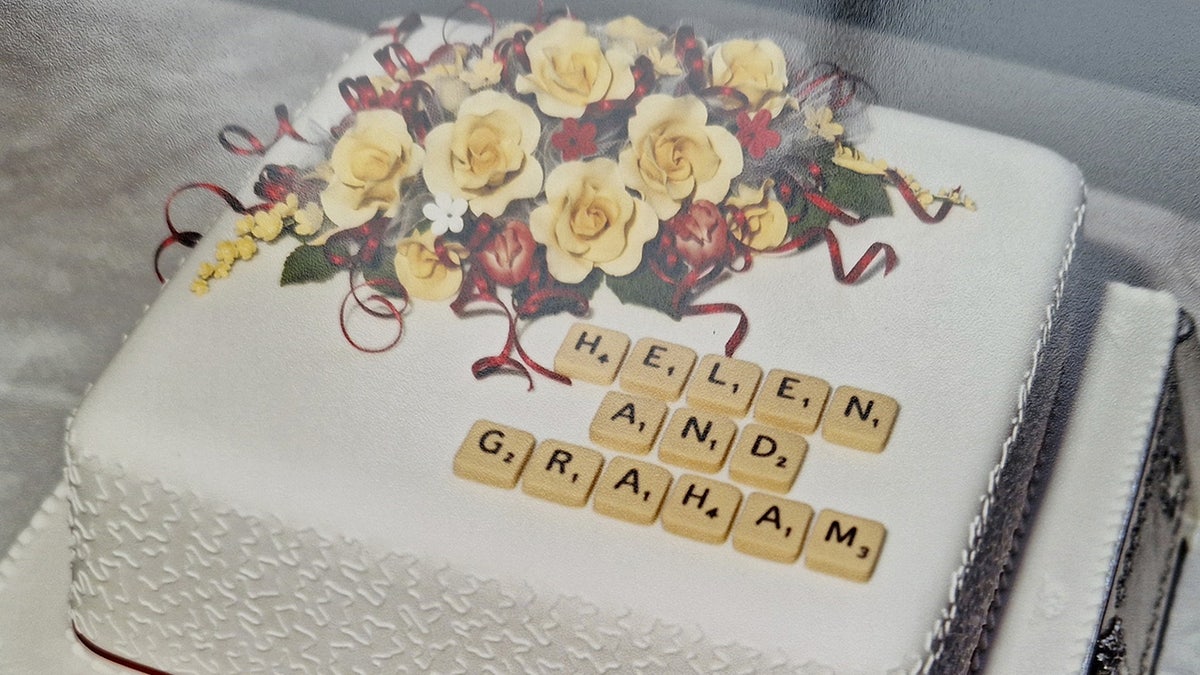
Graham and Helen Harding’s wedding cake. They bonded over their love of Scrabble – and are still playing in tournaments together. (Courtesy Graham and Helen Harding via SWNS)
The couple said they were “vague acquaintances” for about five years after they first met.
Then they got together after a special match in Swindon.
CLICK HERE TO SIGN UP FOR OUR HEALTH NEWSLETTER
They maintained a long-distance relationship before they got married in 2004.
The couple even brought their Scrabble board to their wedding.
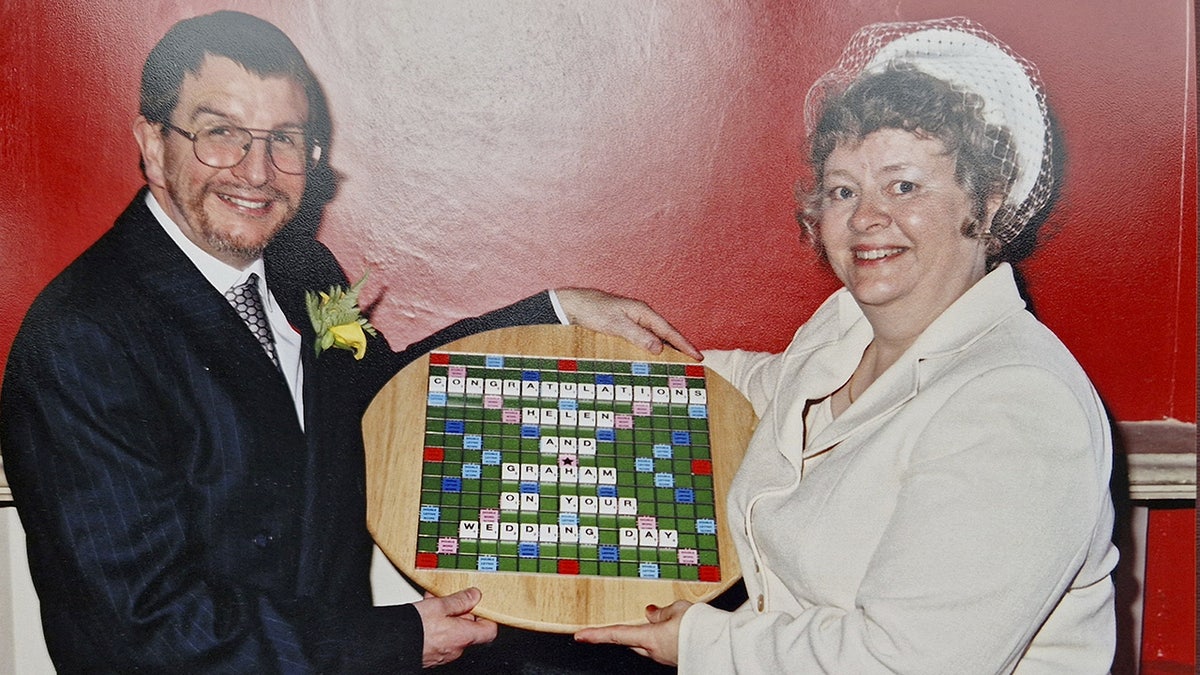
The couple likely have played thousands of games between them. (Courtesy Graham and Helen Harding via SWNS)
It featured a message with Scrabble pieces that said, “Congratulations on your wedding day” — while their wedding cake said, in Scrabble letters, “Helen and Graham.”
For more Health articles, visit www.foxnews.com/health
They each took up the hobby early in life well before they met each other.
The tournament that’s been taking place this week is the first since the COVID pandemic after a five-year break — and the couple has played some two dozen games in it as of Friday, SWNS reported.
Health
Deep sleep can keep two big health problems at bay, new studies suggest
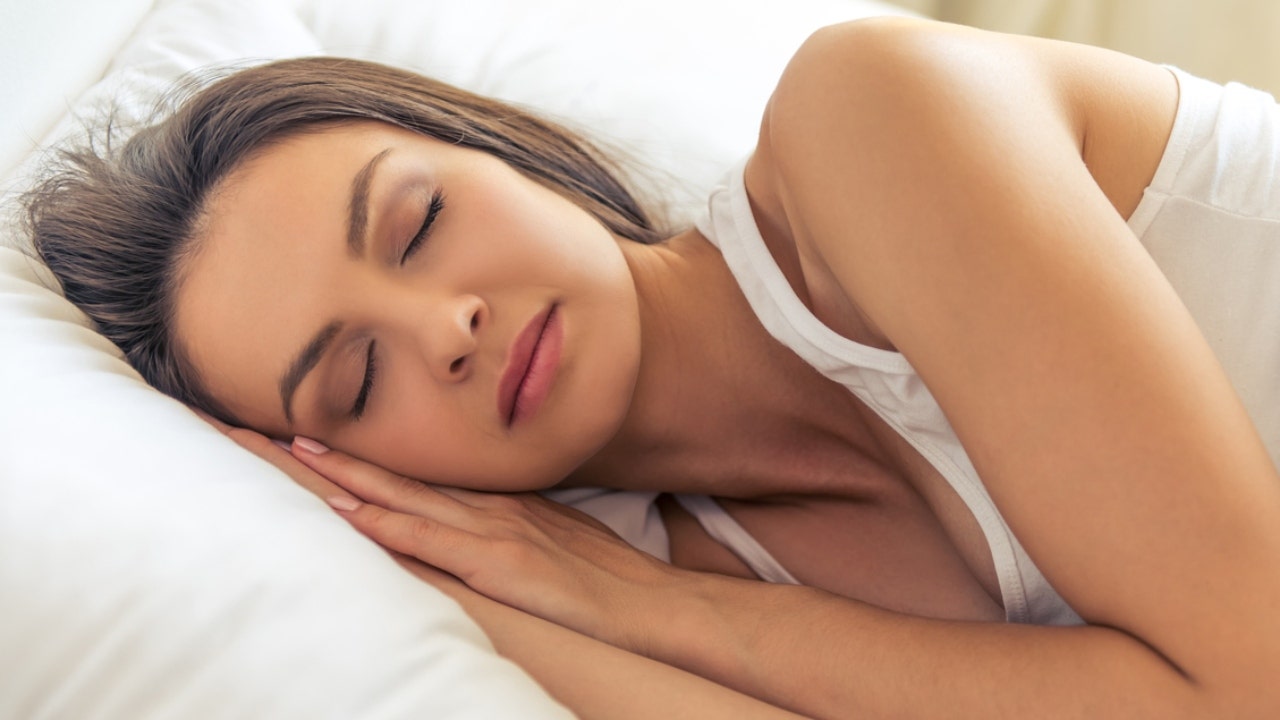
It might be worth working a little bit harder to get that much-desired, but often elusive, good night’s sleep.
Deep sleep clears the mind of waste just as a “dishwasher” cleans dirty plates and glasses, just-published research suggests — and there’s more.
The findings also offer insights into how sleeping pills may disrupt the “brainwashing” system — potentially affecting cognitive function for people over the long run.
ANOTHER REASON TO GET MORE SLEEP AND THIS ONE MIGHT SURPRISE YOU
Study senior author professor Maiken Nedergaard of the University of Rochester and the University of Copenhagen said norepinephrine (a neurotransmitter and hormone) triggers blood vessels to contract — generating slow pulsations that create a rhythmic flow in the surrounding fluid to carry away waste, news agency SWNS noted.
Said Nedergaard, “It’s like turning on the dishwasher before you go to bed and waking up with a clean brain. . . . We’re essentially asking what drives this process and trying to define restorative sleep based on” this “glymphatic clearance.”
“It’s like turning on the dishwasher before you go to bed and waking up with a clean brain.” (iStock)
The brain has a built-in waste removal process – the glymphatic system – that circulates fluid in the brain and spinal cord to clear out waste, according to the scientists.
The process helps remove toxic proteins that form sticky plaques linked to neurological disorders, such as Alzheimer’s disease.
But the scientists indicated that what drives the system was unclear until now, according to the study.
Is all sleep created equal? The researchers wanted to find out.
To find clues, Nedergaard and her team looked into what happens in mice when their brains sleep, as SWNS reported of the study. The team focused on the relationship between norepinephrine and blood flow during deep sleep.
TRUMP’S DAYLIGHT SAVING PLAN AND SLEEP: WHAT YOU MUST KNOW
They found that norepinephrine waves correlate to variations in brain blood volume — suggesting that norepinephrine triggers a rhythmic pulsation in the blood vessels. The researchers then compared the changes in blood volume to brain fluid flow.
The brain fluid flow fluctuates in correspondence to blood volume changes, suggesting the vessels act as pumps to propel the surrounding brain fluid to flush out waste.
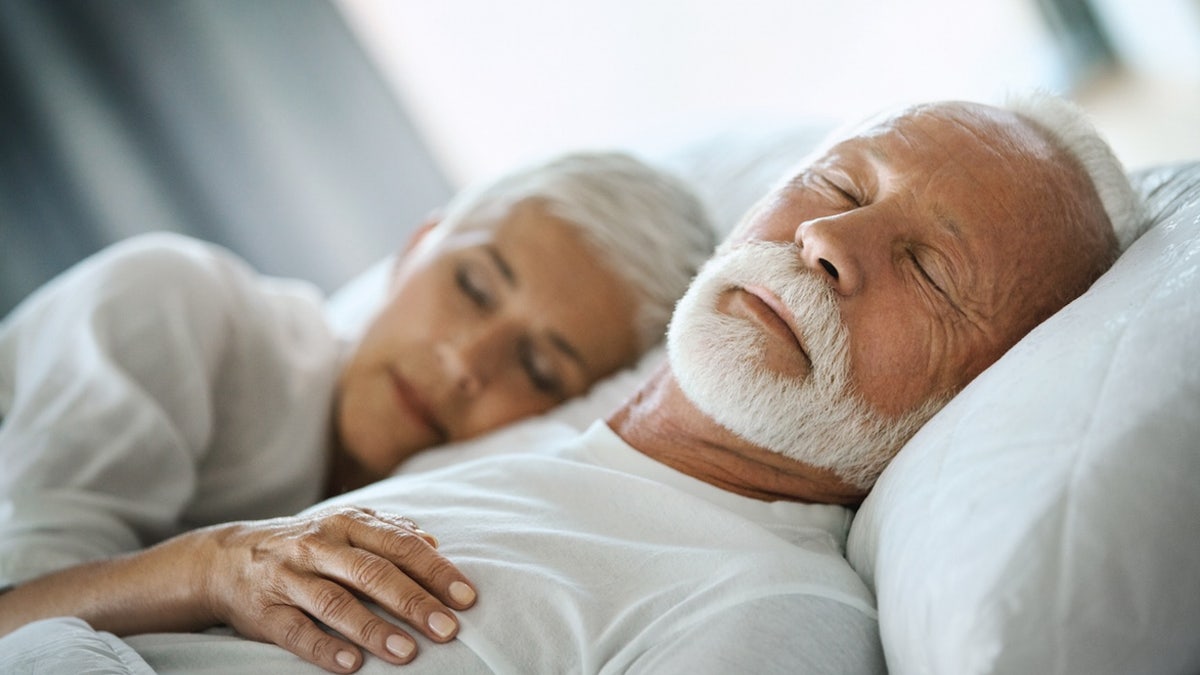
During deep sleep, toxic proteins that form sticky plaques linked to neurological disorders such as Alzheimer’s disease are removed, scientists say in a new study. (iStock)
Natalie Hauglund of the University of Copenhagen and the University of Oxford, the study’s lead author, said, “You can view norepinephrine as [the] conductor of an orchestra.”
She added, “There’s a harmony in the constriction and dilation of the arteries, which then drives the cerebrospinal fluid through the brain to remove the waste products.”
‘I CAN’T SLEEP BECAUSE OF RACING THOUGHTS AT NIGHT — HOW CAN I STOP THEM?’: ASK A DOCTOR
Hauglund said she wanted to understand whether all sleep is created equal.
To find out, the research team administered zolpidem, a common drug to aid sleep, to mice.
“If people aren’t getting the full benefits of sleep, they should be aware of that, so they can make informed decisions.”
They found that the norepinephrine waves during deep sleep were 50% lower in zolpidem-treated mice than in naturally sleeping mice.
Although the zolpidem-treated mice fell asleep more quickly — fluid transport into the brain dropped more than 30%, as SWNS reported.
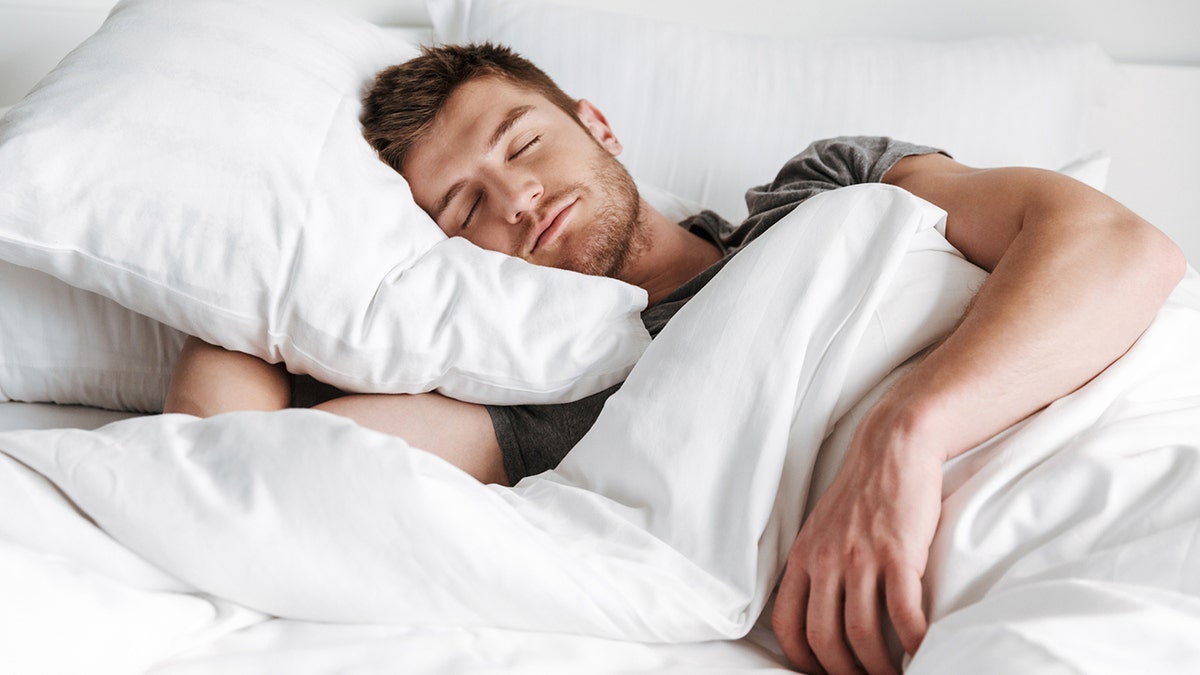
Two new studies indicate the importance of getting a good night’s sleep — with one study saying a lack of sleep may be sabotaging the brain’s ability to keep intrusive thoughts at bay. (iStock)
The researchers say their findings, published in the journal Cell, suggest that the sleeping aid may disrupt the norepinephrine-driven waste clearance during sleep.
Hauglund said, “More and more people are using sleep medication, and it’s really important to know if that’s healthy sleep. If people aren’t getting the full benefits of sleep, they should be aware of that, so they can make informed decisions.”
CLICK HERE TO SIGN UP FOR OUR HEALTH NEWSLETTER
The research team said the findings likely apply to humans, who also have a glymphatic system, although it requires further testing.
Nedergaard added, “Now we know norepinephrine is driving the cleaning of the brain, we may figure out how to get people a long and restorative sleep.”
For more Health articles, visit www.foxnews.com/health
Meanwhile, a lack of sleep may be doing more damage than just making people groggy.
It could be sabotaging the brain’s ability to keep intrusive thoughts at bay.
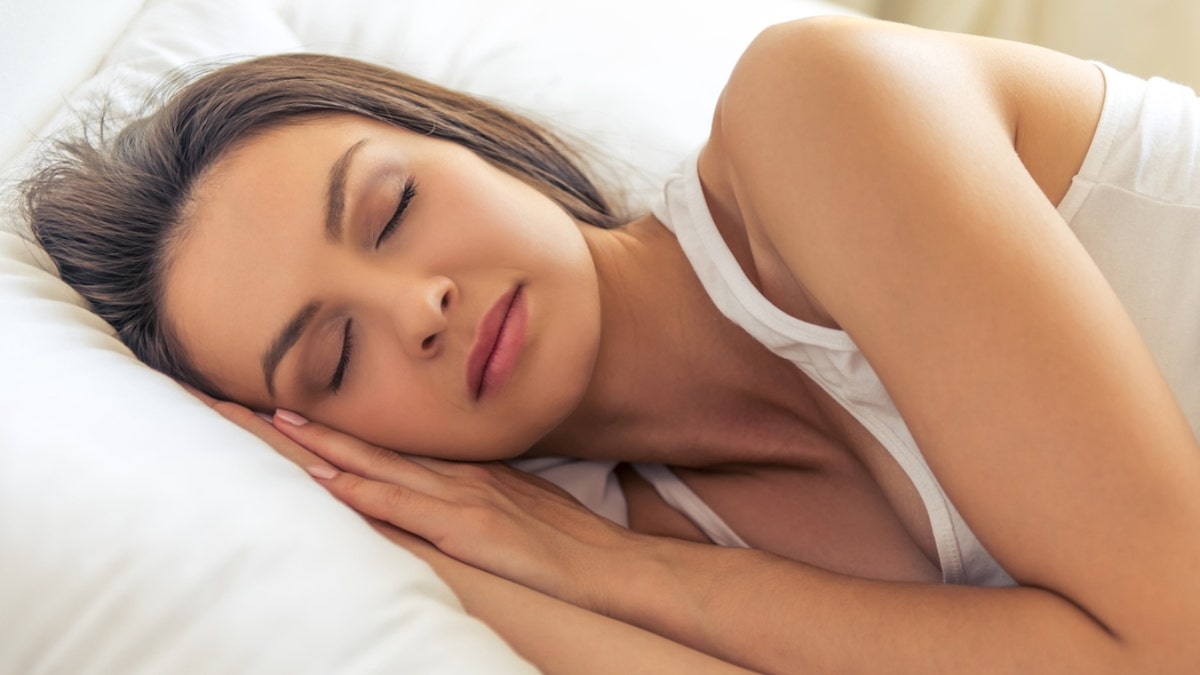
Anyone who suffers from sleep deprivation may find that the brain’s defense against unwanted memories is weakened, say experts. (iStock)
Another new study, this one published in the Proceedings of the National Academy of Sciences, found that sleep deprivation weakens the brain’s defense against unwanted memories, allowing them to flood the mind, according to the New York Post.
“We show that sleep deprivation disrupts prefrontal inhibition of memory retrieval, and that the overnight restoration of this inhibitory mechanism is associated with time spent in rapid eye movement (REM) sleep,” the scientists said.
Health
How Kathy Bates Lost 100 Lbs—Plus Her Tips for Sustainable Weight Loss

Sign Up
Create a free account to access exclusive content, play games, solve puzzles, test your pop-culture knowledge and receive special offers.
Already have an account? Login
Use left and right arrow keys to navigate between menu items.
Use escape to exit the menu.
-

 Politics1 week ago
Politics1 week agoNew Orleans attacker had 'remote detonator' for explosives in French Quarter, Biden says
-

 Politics1 week ago
Politics1 week agoCarter's judicial picks reshaped the federal bench across the country
-

 Politics1 week ago
Politics1 week agoWho Are the Recipients of the Presidential Medal of Freedom?
-

 Health7 days ago
Health7 days agoOzempic ‘microdosing’ is the new weight-loss trend: Should you try it?
-

 World1 week ago
World1 week agoSouth Korea extends Boeing 737-800 inspections as Jeju Air wreckage lifted
-
/cdn.vox-cdn.com/uploads/chorus_asset/file/25822586/STK169_ZUCKERBERG_MAGA_STKS491_CVIRGINIA_A.jpg)
/cdn.vox-cdn.com/uploads/chorus_asset/file/25822586/STK169_ZUCKERBERG_MAGA_STKS491_CVIRGINIA_A.jpg) Technology3 days ago
Technology3 days agoMeta is highlighting a splintering global approach to online speech
-

 World1 week ago
World1 week agoWeather warnings as freezing temperatures hit United Kingdom
-

 News1 week ago
News1 week agoSeeking to heal the country, Jimmy Carter pardoned men who evaded the Vietnam War draft
